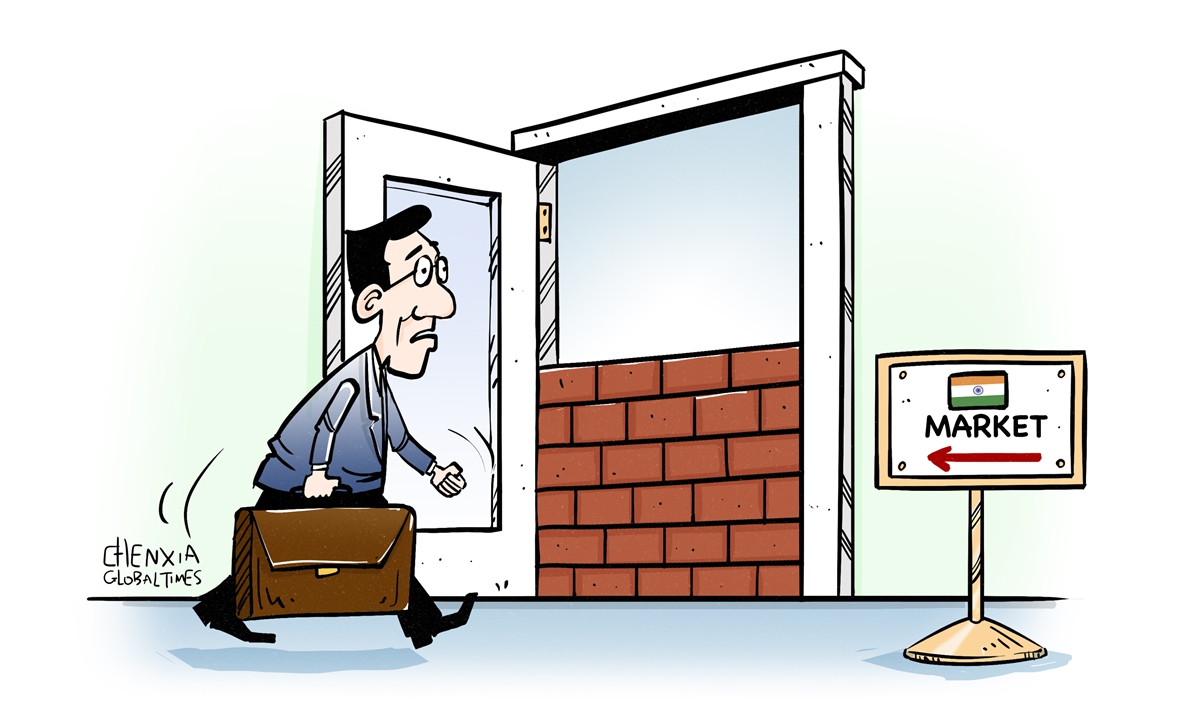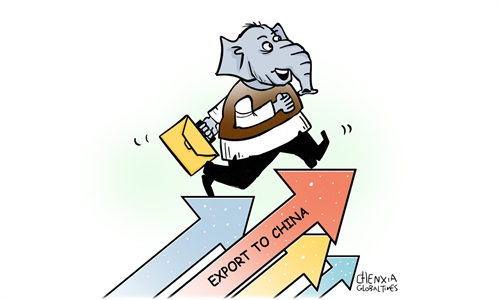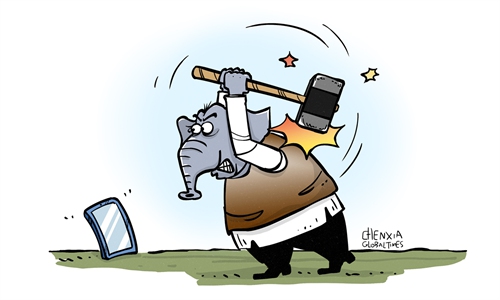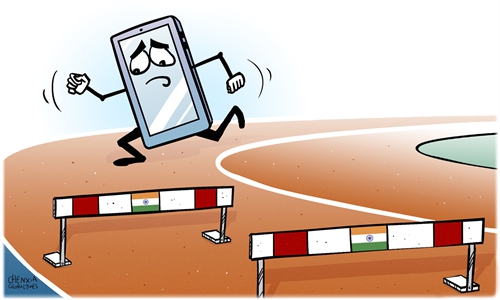
Illustration: Chen Xia/Global Times
India is open to Chinese investment despite border tensions between the two countries, India's Deputy Minister for Information Technology Rajeev Chandrasekhar told the Financial Times (FT) in a report published on Wednesday.
One can't rule out the possibility that these words are just diplomatic rhetoric that should not be taken seriously, but we hope things can move in a positive direction. We sincerely hope that Chandrasekhar's remarks won't turn out to be just empty words, and his remarks represent a positive signal that India, to some extent, will return to rationality on Chinese investment, and gradually change its unfriendly and unfair restrictions on Chinese firms.
New Delhi has ramped up scrutiny of Chinese businesses over the past three years amid border tension, banning more than 300 Chinese apps, including TikTok. India has also intensified scrutiny of investments by Chinese firms, undermining the confidence of Chinese investors. The ghost of nationalism lingers in India. Although the country tries to make itself an attractive destination for foreign direct investment, some in India still view Chinese investment through the lens of nationalism.
Against this backdrop, it is hoped more rational voices speak up. Although some people criticized Chandrasekhar's words as being different from India's actual practice, we still hope there will be some positive changes in India's business environment following Chandrasekhar's remarks. Saying India is open to Chinese investment is welcome, but is not enough. India should take concrete actions to correct its economic policy toward China, providing a fair, just and non-discriminatory business environment for Chinese enterprises.
Chandrasekhar told the FT that India is "open to doing business with any company anywhere as long as they are investing and conducting their business lawfully and are in compliance with the Indian laws." He was quoted as saying that India was "open to all investment, including Chinese."
However, just several days ago, Indian media Economic Times reported that India had rejected Chinese automaker BYD's proposal to set up a $1 billion factory in India in partnership with Hyderabad-based Megha Engineering and Infrastructures. If India is truly open to Chinese investment as Chandrasekhar said, the country should ensure Chinese companies, including BYD, can get fair treatment in India.
BYD India, the subsidiary of BYD Co, which is the world's leading electric vehicle manufacturer, is targeting the No.2 spot in the Indian passenger electric vehicle space by year-end, the Economic Times said in another report in January, adding that the company hopes to sell 15,000 electric cars this year.
If the Indian government can encourage BYD to produce electric cars in India, it will bring more tax revenue and jobs to India, and promote the development of India's manufacturing industry, which will be a win-win result. It is undeniable that India needs Chinese investment. This is the result of market choice.
China has established itself as a manufacturing powerhouse in the world, and many of its outbound investments go into sectors such as manufacturing. As for India, a large economy with a huge young population, the country makes no secret of its desire to become a world factory by attracting manufacturing investment.
The two countries have strong economic complementarity. Looking at Chinese investment from a geopolitical perspective can only undermine win-win bilateral cooperation and is not conducive to India's manufacturing development.
India's huge market is attractive to global manufacturers. Over the past decade, many Chinese companies have been attracted by India's market and strengthened their operations in the country. Some have achieved great commercial success. Observers believe that India's eagerness to reap profits from these foreign companies through crackdowns has seriously hindered the development of these companies in the Indian market. If India repeatedly does this, it will in turn undermine its own market reputation. This means India will find it difficult to translate its market potential into economic and manufacturing development opportunities.
It is hoped that India can seize the opportunities for manufacturing development, change its attitude toward Chinese enterprises, truly adopt an open attitude toward Chinese manufacturers, and provide a fair investment environment for them.
The author is a reporter with the Global Times. bizopinion@globaltimes.com.cn



